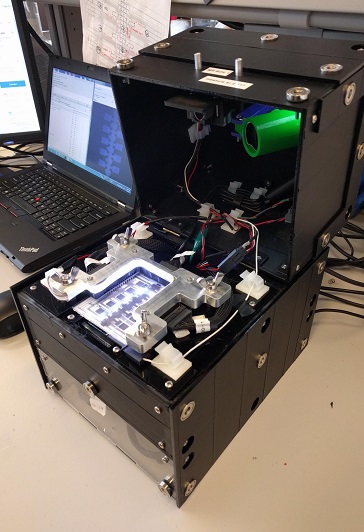Podcast: Play in new window

HIRSHON:
Each year, 134,000 people die of measles, partly because even in places with large vaccination programs, many people are left out. Biomedical engineer Aaron Wheeler and his colleagues at the University of Toronto developed an inexpensive, 3D-printed device that needs just a tiny drop of blood to determine whether a child is at risk or not. In the journal Science Translational Medicine, they describe putting it to a test.
AARON WHEELER (University of Toronto):
To take our technology six thousand kilometers away to a remote refugee camp in northwest Kenya.
HIRSHON:
Even in this challenging environment, the device performed almost as well as lab standard reference tests. Now they’re working to improve the technology and adapt it for use with a variety of other infectious diseases, including malaria and Zika virus. I’m Bob Hirshon, for AAAS, the science society.
Story by Bob Hirshon

